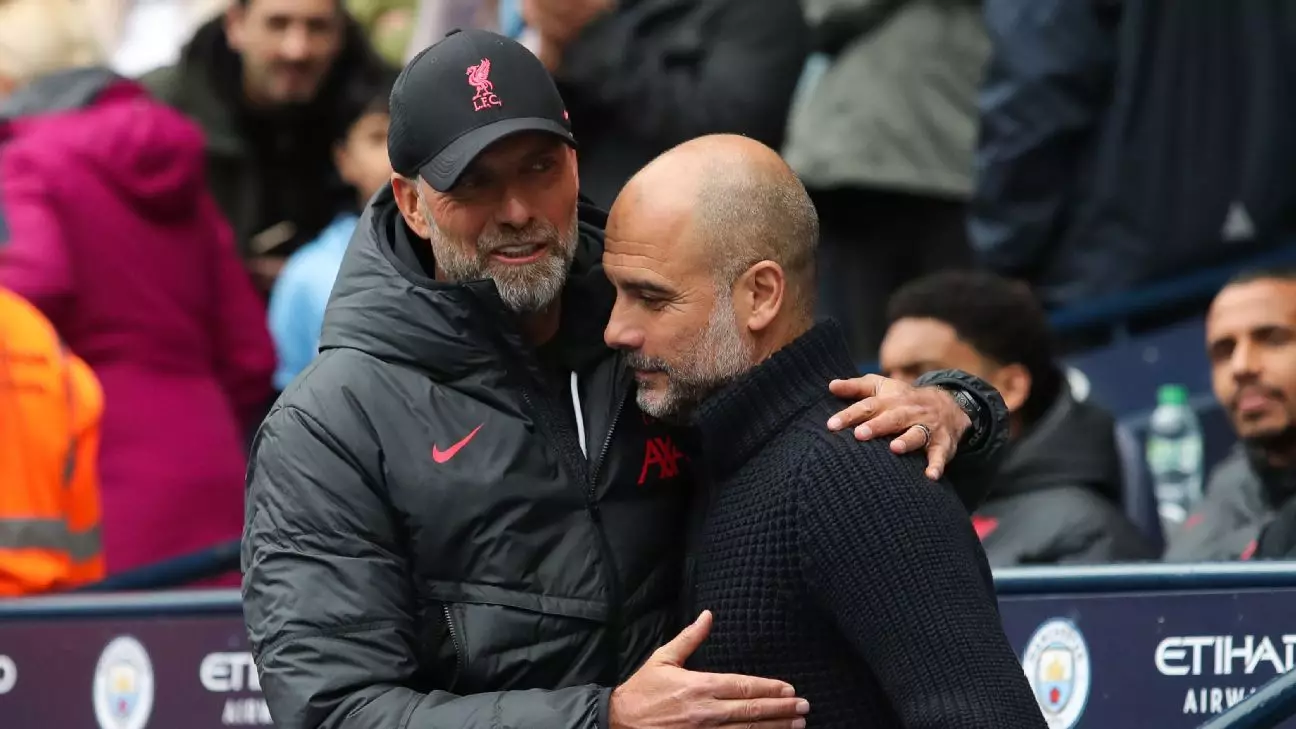In a recent reflection on the looming implications of financial regulation breaches in football, former Liverpool manager Jürgen Klopp made headlines with his provocative remarks regarding Manchester City’s status in the Premier League. As the footballing world waits for a verdict from an independent commission assessing Manchester City’s alleged financial misconduct, Klopp’s playful suggestion of celebrating on the sunny isle of Mallorca if the titles are stripped underscores the emotional connectivity and rivalries inherent in the sport. This commentary exposes deeper issues surrounding the enforcement of financial rules and their repercussions on the integrity of competitive leagues.
The Context of Compliance and Consequence
At the heart of this saga is Manchester City, who stand accused of over 100 violations of the Premier League’s financial legislation, dating back to as early as 2009. Throughout the inquiry process commenced by the Premier League in February 2023, City has maintained its stance of innocence and vehemently denied all allegations. This situation raises pertinent questions not just about the accountability of clubs, but also the effectiveness and transparency of financial regulations within football.
Klopp’s quip about hosting a party should Manchester City be penalized comes from his personal experience of losing crucial title runs to Pep Guardiola’s squad. His two high-profile campaigns in the 2018-19 and 2021-22 seasons ended with Liverpool as runners-up, and it is perhaps an understandable sentiment for a manager who poured his heart into the club. However, such comments also illustrate the zealous nature of contemporary football culture, where fan factions and managerial rivalries can exacerbate the conversation surrounding the integrity of the sport.
As Klopp transitioned from the Anfield dugout to a more global role with Red Bull, he was simultaneously faced with another pressing topic: the futures of key Liverpool players such as Trent Alexander-Arnold, Mohamed Salah, and Virgil van Dijk. Each of these athletes is on the verge of an important contractual crossroads, generating significant speculation about their futures amid a fluctuating landscape in professional football.
Klopp expressed his desire for these stars to extend their contracts, a sentiment that reflects not only personal attachment but also the growing importance of stable talent in team building. The uncertainty clouding these players‘ futures signals broader challenges in football management—how to maintain a competitive edge while navigating the precarious waters of player contracts, market valuations, and the financial climate dictated by entities far removed from the pitch.
In his comments on external competitions like the FIFA Club World Cup, Klopp struck a chord by addressing the frantic pace and relentless scheduling often faced by players. He criticized the notion of asking players to compete in worldwide tournaments without the opportunity for adequate recovery. This perspective is increasingly necessary as the mental and physical toll on athletes has come into sharper focus in recent years.
Klopp’s assertion that some leagues could benefit from having fewer teams to reduce the number of fixtures also reflects contemporary discussions about player welfare and the sustainability of seasons. If top players are continually pushed to the brink, not only does it lead to injuries but it also runs the risk of diminishing the quality of the sport. Striking a balance between commercial interests and player well-being is crucial for football’s future, and Klopp’s insights underscore the urgent need for reform in this regard.
The labyrinthine nature of football governance and regulation requires continuous examination to ensure that the essence of competition is upheld while recognizing the complexities clubs face in compliance. Klopp’s remarks, while light-hearted on the surface, reveal the much more serious undercurrents of rivalry, accountability, and player welfare that need urgent attention. As football moves forward into an uncertain future—one that demands agility, ethical judgment, and proactive governance—these conversations must transform from playful banter into foundational frameworks for reform. In an evolving sport, it is the shared responsibility of stakeholders across the board to safeguard its integrity for players, managers, and most importantly, the fans.


Napsat komentář